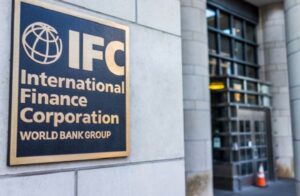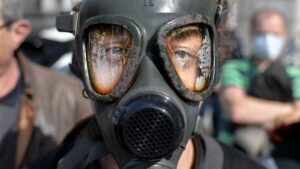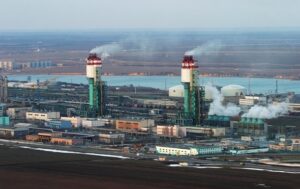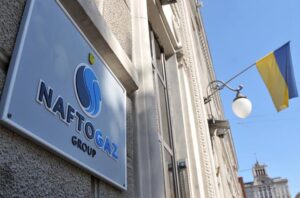
State Aviation Enterprise “Ukraine” (Boryspil, Kyiv Region) on May 24 announced a tender for insurance of liability of the operator of a civil aircraft of commercial aviation for damage caused to third parties and liability of an air carrier for damage caused to passengers and luggage; aircraft insurance.
According to the message in the electronic public procurement system Prozorro, the tender was announced for the insurance of aircraft crew members, other aviation personnel and persons entitled to be on board the aircraft legally without purchasing tickets.
The expected value of the insurance services purchase is UAH 26.674 mln.
The amount of security for contract execution is 5% of the value of the procurement contract.
The deadline for submission of tender offers is June 1
As reported, the only participant in a similar tender announced on April 22, 2024 was “Ukrainian Fire Insurance Company” (UPIC Kiev) with a proposal of UAH 26.665 million, with an expected cost of UAH 26.674 million. However, on May 22, the company’s offer was rejected.
State Enterprise Ukraine was established to organize, provide and perform air transportation, special flights of the highest official delegations of Ukraine and other states within the country and beyond its borders in compliance with the requirements and rules stipulated in the relevant regulations.
civil aviation, INSURANCE, RISKS, State Enterprise Ukraine, TENDER

The International Finance Corporation (IFC) is launching a EUR20 mln risk-sharing facility for the Ukrainian subsidiaries of Hungary’s OTP Bank: OTP Bank and OTP Leasing, to support small and medium-sized enterprises (SMEs), especially those operating in the agribusiness sector or owned by women.
“IFC assumes half of the risk on a combined EUR40 million portfolio covering key segments of the Ukrainian economy,” the corporation said in a press release on Friday.
It is specified that these will be the first risk-sharing arrangements in Ukraine under the IFC Small Loan Guarantee Program, which is supported by the European Commission and which will help save jobs, provide essential goods and services, restore supply chains, as well as generate export revenues and budget revenues.
IFC recalls that in 2021, SMEs accounted for 99.97% of all enterprises in Ukraine, generated about 60% of gross domestic product (GDP) and employed more than 7 million people. SMEs suffered significant losses in the second half of 2022, and now only 6% of them are doing business at the same levels as before Russia’s full-scale invasion.
“A strong private sector is key to Ukraine’s economic revival. Expanding access to finance for businesses is critical to counteract the macroeconomic instability and supply chain disruptions that are now severely hampering economic activity in the country,” IFC Vice President for Europe, Latin America and the Caribbean Alfonso Garcia Mora was quoted as saying in the release.
He added that IFC aims to ensure access to credit and stimulate innovation as a key prerequisite for Ukraine’s recovery.
As reported, initially IFC from the World Bank Group considered the project of providing partial risk coverage of new financing for Ukrainian OTP Bank and OTP Leasing for EUR60 mln – EUR30 mln for each financial institution, estimating its possible participation in risk coverage up to EUR30 mln.
OTP Bank was the eighth among 65 Ukrainian banks in terms of total assets (103.33 billion UAH) at the beginning of June this year. The Bank has 75 branches in Ukraine.
“OTP Leasing is the largest leasing company in Ukraine with the share of about 45% according to the results of the first quarter of this year. The CEO of OTP Leasing Andrey Pavlushin reported earlier that in the first half of 2023 the company financed Ukrainian clients for UAH 2.2 billion, which is 3-4% more than the indicator of the first half of 2022.

The risk of cholera in the south and east of Ukraine is higher than in other regions, says infectious disease doctor Olga Bonkovska.
“There is still a higher risk of cholera outbreaks in the south and east of Ukraine. These regions are the regions with the highest risk of a cholera epidemic,” she said on the air of the analytical center “Experts Club”.
Commenting on the risks of cholera outbreaks after the Kakhovka hydroelectric power station dam was blown up, Bonkovska noted the danger of cholera, in particular, because “cholera starts as a common intestinal infection, and in the initial stages it is impossible to distinguish whether it is cholera or a common intestinal infection.”
“I do not recommend self-medication, because it will help if it is a common intestinal infection, but if it is cholera, there is no way to cure cholera at home,” she said.
The expert reminded that the main manifestation of cholera is dehydration.
“Due to severe dehydration, a person can go into shock with loss of all body functions, kidneys, heart, which can lead to death,” she said.
The infectious disease specialist emphasized that during cholera, “fluid loss becomes so severe that a person simply does not have time to replenish the fluid loss with water.”
“The rate of water excretion from the body exceeds the rate of water absorption during oral rehydration, and medical care in a hospital is needed to replenish water,” she said.
Bonkovska noted that in order to protect oneself from cholera, especially in the regions affected by flooding, it is necessary to drink bottled water or water that has been treated by boiling or using special tablets, wash fresh vegetables and fruits with bottled water or chilled boiled water, wash or disinfect hands with ordinary sanitizers, get rid of the habit of keeping hands in the mouth: take the rule “Hands out of the mouth!” as an axiom.
In addition, the infectious disease specialist recommends not eating with your hands, “as a last resort, keep a sandwich or any other food in a clean napkin,” not eating shrimp or fish without prior heat treatment, and swimming only in those bodies of water where it is allowed.
At the same time, the expert emphasized the inadmissibility of self-medication of acute intestinal infections with antibiotics.
“I don’t advise you to start treating diarrhea at home. It is still better to seek medical help,” she said.
Watch the full video here:
To subscribe to the Experts Club channel, please click here:

The OSCE Project Co-ordinator in Ukraine has published a collection of leaflets and publications on chemical security risks to help civilians take care of their safety in the conditions of ongoing hostilities.
“Military campaigns in such an industrialized country as Ukraine bear serious risks of incidents with the release of toxic chemicals, endangering people and the environment. Interruptions in work of enterprises, targeted or accidental hits of industrial facilities in the course of combat or as a result of air and rocket strikes – these factors increase chemical security risks immensely,” said Ambassador Henrik Villadsen, the OSCE Project Co-ordinator in Ukraine.
An assessment produced by Ukrainian State Emergency Service in 2018, mentioned that 655 facilities across the country stored more than 216,000 tons of dangerous chemicals. Research on the environmental impact of hostilities in Donbas, performed with the support of the OSCE Project Co-ordinator, highlighted severe chemical security concerns, as more than 500 major interruptions of work for enterprises in the eastern part of Ukraine were recorded between 2014 and 2017.
The awareness-raising materials include a leaflet, “Chemical Incidents. Leaflet on Risks and Safety Measures” that provides generalized guidance on safety measures related to accidents with toxic substances. Four other leaflets contain specific guidance for occasions of release or spills of most widespread chemicals – ammonia, mercury, chlorine and nitric acid. They also contain practical advice on administering medical assistance in such cases. In addition, the Co-ordinator is organizing a webinar for journalists to help them better understand the risks in this context.
The collection also contains publications, created specifically for the training of emergency response personnel, which will also be the basis for further production of awareness-raising materials and as a useful source of information for local authorities and other civilian services in planning measures in response to possible emergencies.
These materials, updated according to the recent developments, were developed by the OSCE Project Co-ordinator with the financial support of the European Union, United States of America, and Germany as one of the project’s activities aimed at enhancing chemical safety and security in Ukraine.
This newsitem is published here

The decision of the Supreme Court to refuse the Ostchem Holding Limited company of Dmytro Firtash to comply with the decision of the Arbitration Institute of the Stockholm Chamber of Commerce to recover over $300 million from Odesa-Port Side Plant for gas supplies causes mixed feelings and bears risks of consequences, Minister of Justice Denis Maliuska has said.
“The decision was also a surprise for me… On the one hand, as a citizen, I am glad that the funds will not be recovered from the state-owned enterprise, and on the other hand, the argumentation and how it looks in terms of possible consequences, perhaps this is not yet the end of the story, risks remain,” he said in an interview with Interfax-Ukraine.
Commenting on commercial arbitrations against Ukraine in general, Maliuska said that he does not see the danger of making any critical decisions regarding Ukraine this year.
As reported, in 2016, the Arbitration Institute of the Stockholm Chamber of Commerce decided to recover $250 million from Odesa-Port Side Plant in favor of Ostchem Holding Limited for the gas that the company supplied to the plant in 2013.
In March 2017, by a decision of the Yuzhny City Court, this decision was legalized on the territory of Ukraine. The validity of this decision was also recognized by the Court of Appeal of Odesa region. In July 2018, the Supreme Court reversed those decisions.
Again, Ostchem was able to achieve a positive decision for itself in the Kyiv Court of Appeal in April 2019. According to a document published in the unified register of court decisions, Odesa-Port Side Plant, in accordance with the decision of the Stockholm tribunal, had to pay Ostchem almost $193.3 million in principal and $58 million in fines.
The plant objected to the ruling made by the Ukrainian court, noting that the company had been stopped since the middle of 2018 and the implementation of the decision of the Arbitration Institute of the Stockholm Chamber of Commerce would lead to bankruptcy and threats of a man-made and environmental disaster. In addition, the State Property Fund said that the contracts signed by plant and Ostchem are void. Odesa-Port Side Plant and the State Property Fund filed an appeal with the Supreme Court, which satisfied it in June 2021 and finally refused Ostchem to comply with the decision of the Arbitration Institute of the Stockholm Chamber of Commerce to recover over $300 million from the plant.
Ostchem has not yet announced what action it has taken or will take following the Supreme Court’s verdict.

NJSC Naftogaz Ukrainy in a letter sent to the government at the beginning of this year warned of the risks of balancing the gas transmission system (GTS) of Ukraine in the current heating season, which, according to the company, are associated with the problems of forming sufficient natural gas resources for these purposes by Gas Transmission System Operator Ukraine (GTSOU).
In a copy of the document available to the Interfax-Ukraine agency, Naftogaz notes that, according to the law on the natural gas market, GTSOU must purchase gas for these purposes “in a non-discriminatory and transparent manner and on market conditions.”
It notes that the current legislation in no way imposes on the participants in the natural gas market, in particular on Naftogaz, the obligation to provide the balancing service to GTSOU.
According to Naftogaz, GTSOU did not provide, as provided for by European rules, the possibility of trading gas for the needs of balancing the system on liquid exchanges or on its own trading platform.
Naftogaz recalled that the contract between GTSOU and the subsidiary of Naftogaz, Naftogaz Trading gas supply company LLC, on the provision of balancing services by the latter expires on January 19, 2022, and a new similar tender in December 2021 failed due to insufficient interest from market participants in the conditions proposed by GTSOU.
Naftogaz informs that it does not see an opportunity to participate in a new tender for the purchase of balancing services by GTSOU for 2022. According to Naftogaz, the GTS operator, by purchasing the balancing service from Naftogaz, actually resells it to gas market entities (primarily Naftogaz) and receives super profits.